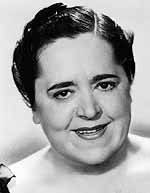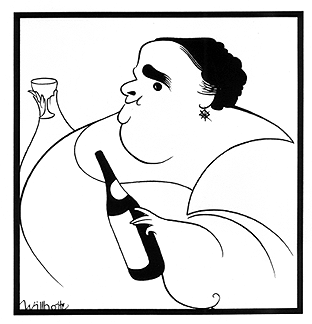Clan Maxwell Society
Celebrating the Scottish Heritage of Maxwells and their Allied Families
Adair • Blackstock • Dinwiddie/Dinwoodie/Dinswoodie • Edgar • Herries • Kirl • Kirkland • Latimore/Latimer • MacKittrick • Maxton • Monreith • Moss • Nithsdale • Peacock • Pollock/Pollok • Polk/Paulk • Rawlins • Sturgeon • Wardlaw
ELSA MAXWELL
Hostess with the Mostest


Elsa Maxwell reigned as America’s top party-giver in the mid-Twentieth Century. Labeled “The Hostess with the Mostest” by the press, her rise to command the ballrooms of New York, Vienna and London took her worlds away from her humble Iowa beginnings.
Elsa was Born in Keokuk, Iowa, in 1883, but moved to California as a small child. She left school at age 14 to work as a theater pianist and accompanist, though she had never had a formal music lesson. By 1905, she was on the road as an odd-jobs girl in a Shakespearean troupe, then moved on to the vaudeville stage, and eventually wound up working in South African music halls.
In her travels, Elsa met socially important people, and she began showing up at society soirées in both the United States and Europe. By the end of World War I, she was giving parties for royalty and high society throughout Europe. She established herself as a premier hostess in 1919, when she staged an exquisite dinner at the Ritz Hotel in Paris for Arthur Balfour, England’s secretary of foreign affairs. Later she would organize the International Motor Boat Races at the Lido in Venice and assist the Prince of Monaco in planning some of that country’s most elegant hotels, restaurants and casinos.
Elsa Maxwell’s parties were noted both for her chic guests and for the novelties she devised to keep them amused. She ’s invented the “scavenger hunt,” for example, a party game which swept to popularity in the 1930s. And she was fond of costume parties, often requiring her males and female guests to wear costumes of the opposite gender.
One of her guests, Elizabeth Varley, wrote about attending an Elsa Maxwell party while visiting with conductor Toscanini’s daughters, Wally and Wanda:
“When it became known that La Maxwell would be giving a special party, everyone was clamouring for an invitation. I was one of the lucky ones, and on receiving the invitation learned that this was to be a fancy dress evening: men were to dress as women and vice-versa, in short a transvestite affair. This being Venice, on-one raised an eyebrow. Wally was vastly intrigued by the whole idea, and promptly set about organising costumes for her house guests. She decreed that Wanda and I should be dressed as rough sailors complete with ‘six o’clock shadow’ on our chins. Wally herself stuck to the feminine gender, appearing as a convincing ‘Madame’ of a low class sea front brothel. But there was one ‘gentleman’ who really stood out from the crowd and that was Marlene Dietrich, flawless in top hat and tails.”
Elsa Maxwell returned to New York City in the early 1930s, and moved on to Hollywood in 1938. There she diversified her career, ultimately writing and appearing in several not-very-successful movies, authoring four books, penning a syndicated columnist, hosting her own radio show (“Elsa Maxwell’s Party Line”), composing some 80 songs, and lecturing broadly. She also became a regular on Jack Paar’s “Tonight” show late in her life, dispensing risqué gossip in her weekly appearances. And all the while she continued organizing parties for prominent social figures.
Elsa Maxwell, who never married, died in New York on November 1, 1963. Of her celebrity-studded life, she declared that it was “not bad, for a short, fat, homely piano player from Keokuk, Iowa, with no money or background, [who] decided to become a legend and did just that.”
Copyright © 2001 — 2023 | All Rights Reserved | Maxwell Writers Group
Site design KWGraphicsandWeb